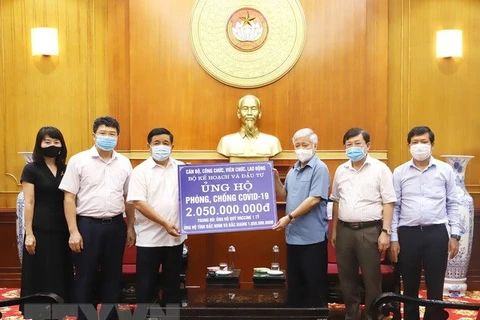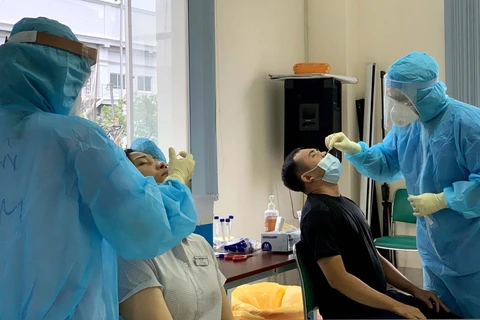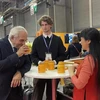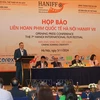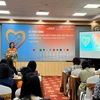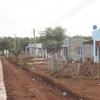Hanoi (VNA) - Vietnam can satisfy COVID-19 vaccine production requirements once it obtains vaccine patents, an officer has affirmed.
Domestic vaccine production would be an opportunity for Vietnam to soon reach herd immunity and even cover exports in the future, Major General Nguyen Viet Luong, Political Commissar of the Vietnam Military Medical University, which is participating in COVID-19 vaccine development, told the Vietnam News Agency (VNA).
He suggested that countries temporarily waive vaccine patents to contribute to the fight against the pandemic.
Four vaccines are under development in Vietnam, by the Nanogen Pharmaceutical Biotechnology JSC, the Institute of Vaccines and Medical Biologicals, the Vaccine and Biological Production Company No 1, and Polyvac.
Of these, the Nanogen Pharmaceutical Biotechnology JSC’s NanoCovax, whose second phase of human trials has been completed, is the most feasible and will soon be approved for emergency use, Luong continued.
The company can produce 2-3 million doses monthly, he said.
Domestic vaccine production would be an opportunity for Vietnam to soon reach herd immunity and even cover exports in the future, Major General Nguyen Viet Luong, Political Commissar of the Vietnam Military Medical University, which is participating in COVID-19 vaccine development, told the Vietnam News Agency (VNA).
He suggested that countries temporarily waive vaccine patents to contribute to the fight against the pandemic.
Four vaccines are under development in Vietnam, by the Nanogen Pharmaceutical Biotechnology JSC, the Institute of Vaccines and Medical Biologicals, the Vaccine and Biological Production Company No 1, and Polyvac.
Of these, the Nanogen Pharmaceutical Biotechnology JSC’s NanoCovax, whose second phase of human trials has been completed, is the most feasible and will soon be approved for emergency use, Luong continued.
The company can produce 2-3 million doses monthly, he said.
 Major General Nguyen Viet Luong, Political Commissar of the Vietnam Military Medical University (Photo: VNA)
Major General Nguyen Viet Luong, Political Commissar of the Vietnam Military Medical University (Photo: VNA) Vaccine manufacturing requires standardised technologies and other factors relating to the environment, workforce, and, most notably, materials.
Luong highlighted the Government and Ministry of Health’s sound vaccine import strategy, which together with patent-based production and local research and production would help Vietnam reach herd immunity in late 2021 or mid-2022.
However, he added, domestic vaccine research and production will remain a long-term pillar as Vietnam will need a large quantity of vaccines annually for its population of nearly 100 million./.
Luong highlighted the Government and Ministry of Health’s sound vaccine import strategy, which together with patent-based production and local research and production would help Vietnam reach herd immunity in late 2021 or mid-2022.
However, he added, domestic vaccine research and production will remain a long-term pillar as Vietnam will need a large quantity of vaccines annually for its population of nearly 100 million./.
VNA

